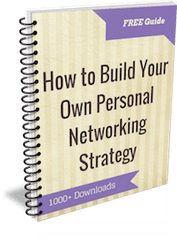’m guessing you became a lawyer because you love the law. Yes? Makes sense. You didn’t go into it because you love forging relationships with strangers. However, that’s what you have to do. Network. If you want to move your career forward you need to have built and nurtured a network which will help you bring in your own clients. Very few people relish it, and it takes time and effort, so this article shares 7 networking tips to help use the time effectively.
1) Understand why you are networking
Most of us go networking without a good understanding of why. Typically, most lawyers (and other professionals) have a fairly vague understanding of why. For example:
‘it will be good for my career’. ‘my partner asked me to go to this event’.
There is often little thought about how they are going to use their networking activities to help them achieve their goals. Consequently, they end up wasting lots of time attending the wrong events, speaking to the wrong people on Twitter and not having the coffees, lunches, drinks and phone calls with people who could really help them grow their client portfolios or progress their careers. Disheartening isn’t it? Avoid making this mistake by really understanding how networking can help, and by having a clear plan for how you are going to network (see Tip 4).
2) Who are the people who can shortcut your path to your goals?
This is probably one of my best networking tips! On my workshops and in my presentations on networking I always talk about why I want to meet George Clooney. Yes, it’s very tongue-in-cheek – but it also gets me a smile and a laugh. To me, George represents someone who can help me achieve what I want in the short and medium future – someone who can help me shortcut my way to achieving my goals. In my experience, most networkers can’t think of their equivalent of George. Consequently, they spend a large amount of time arranging to meet the wrong people and then get disheartened because they never seem to get the outcomes they need from their network. So, before you do anything else, identify who your George is. Now, look through your contacts – where should you be focusing your limited networking time?
3) It’s not about networking, it’s about building and nurturing your network
These are different things! The tried and tested networking method for many established partners is to attend networking events, so I suppose it’s not surprising that attending networking events is seen as the way to grow your profile and win business. Far too passive! There are many better ways of building and nurturing your network than hoping the right people will turn up to the same event as you. Once you have found your George (when you know who you need in your network and why), you can use a whole range of ways of find and build the relationship. How about meeting for a coffee? Sending them useful information? Using LinkedIn to engineer an introduction to someone you want to meet? The list is almost endless!
4) Have a relationship action plan for your key contacts and clients
Often, when time is short, it’s not the networking events that people cut down on, it’s the all-important follow-up with existing contacts. My recommendation is to identify your top ten contacts and write a relationship action plan for each of them. Now, get out your diary (yes, your diary) and translate those plans across into your calendar. If you are going to attend a networking event, allocate at least an hour to following up with people the next morning.
5) Spend 15 mins a day or 1 hour a week nurturing your existing network
We all live busy professional lives, but we all can find 15 mins a day to develop our network. Put this time in your diary and just do it – either 15 minutes every day, or 1 hour every week. Given how easy LinkedIn makes it for us to find people and keep in touch, these 15 mins can be done at your desk using up some dead time, and enjoying a coffee.
6) Use your PA or secretary
Many of our successful lawyer clients do this very well. They delegate most of the relationship management to their secretary or PA. You don’t need to do it all yourself, your PA can keep you on track and set up the appointments. Can you use any of your firm’s marketing resource to research the prospects or introducers with whom you should be building a relationship?
7) Don’t forget the internal firm network
It’s an easy mistake to make: you focus all your networking time on the external world. But, we remind our clients all the time that their internal firm network is just as important, in fact possibly more so, than their external firm network. What else would you add to this list? Networking is such an important part of creating and maintaining a successful career, that I have written about it a lot! Here are just a few links to other articles that you will find useful. Conquering networking nerves. Training your mind to get great results from networking events. Alternatives to evening networking events. “Build your own Networking Strategy” Building a networking strategy: To help you build your own networking strategy and save time with your business development, how about downloading our free joined up networking tool kit and our free guide to building your own personal networking strategy?






